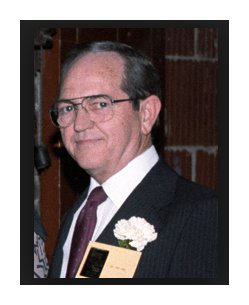

|
RAY E. LUKE Ray E. Luke, 82, passed away Wednesday after a brief
illness. Born in
Fort Worth, Texas on May 30, 1928, Luke was the son of Ray H. and
Dorothy Luke. At an early age, he demonstrated a talent for music and
played trumpet in many area ensembles. Luke earned bachelor's and
master's degrees in music from Texas Christian University. He taught
briefly at Atlantic Christian College in Wilson, N.C. and then returned
to Texas as a music faculty member at East Texas State College. During
his 13-year career at East Texas, he developed a flair for arranging
that led him to make his first efforts at composition. In 1957, Luke
was accepted at the University of Rochester's Eastman School of Music
where he studied composition with Bernard Rogers. Luke earned his Ph.D.
in composition in 1960. In 1962, Luke joined the faculty at Oklahoma
City University, where he became chairman of the instrumental music
department. A year later, Luke became music director of the newly
created Lyric Theatre and conducted there for five seasons. In the late
1960s, Luke became associate conductor of the Oklahoma City Symphony
Orchestra. Upon Guy Fraser Harrison's retirement in 1973, Luke served
as music director of the orchestra for one season. Harrison premiered
the majority of Luke's orchestral works, a practice continued when Luis
Herrera de la Fuente became music director. During a compositional
career that spanned more than 40 years, Luke composed more than 80
works for orchestra, band, chorus, opera, ballet and chamber music. In
1969, his piano concerto won the top prize in the Queen Elisabeth of
Belgium competition. In 1979, his opera "Medea," which featured a
libretto by Carveth Osterhaus, won the New England Conservatory Opera
Competition Award. Luke conducted the world premiere in Boston. Among
his other awards are the Oklahoma Musician of the Year (1970), the
Distinguished Alumnus of TCU (1972) and the Oklahoma Governor's Arts
Award (1979). For more than 25 consecutive years, Luke was honored by
the American Society of Composers, Authors and Publishers. The ASCAP
Award is presented for outstanding work in the area of serious music
composition. Luke's legacy as a composer and his influence on countless
student musicians are a tribute to his tireless efforts to make the
finest music possible. After 35 years at OCU, Luke retired in 1997. He
was preceded in death by his parents and his sister Helen Osier. He is
survived by his wife of 58 years, Faye, daughter Lisa and husband Matt
Mayfield, son Jeff and wife Kim, grandchildren Lauren, Justin and
Madison Mayfield, Jason and Jessie Luke, four nieces and a nephew. The
family will receive guests at the funeral home from 6 to 8 p.m. today.
Services will be at 10 a.m. Saturday at the Spring Creek Baptist
Church, 11701 N. MacArthur with interment in Rose Hill Burial Park.
Memorials may be made in Ray Luke's name to the OCU School of Music
Scholarship fund. Arrangements under the direction of Hahn-Cook/Street
& Draper Funeral Directors, Oklahoma City, OK.
-- Published in "The
Oklahoman" on September 17, 2010
In addition to the details listed
above, here are a few more from another source . . . . .
Ray Luke is
nationally significant as a composer of
contemporary classical music. The hallmark of his highly original work
is a distinctive and unusual combination of techniques and styles. He
composed prolifically, encompassing orchestral music and chamber pieces
as well as opera and ballet. His works include Dialogues for Organ and
Percussion, Sonics and Metrics for Concert Band, Plaints and Dirges for
Chorus and Orchestra, Prelude and March, and the ballet Tapestry. From
1960 through 1973 the Oklahoma City Symphony premiered seventeen of
Luke's works, including Piano Concerto and Compressions for Orchestra.
The Tulsa Philharmonic commissioned and premiered Third Suite for
Orchestra in 1989, and OCU commissioned Cantata Concertante in 1991. In
1995 OCU premiered two of Luke's one-act operas, Drowne's Wooden Image
and Mrs. Bullfrog, both based on stories by Nathaniel Hawthorne.
|
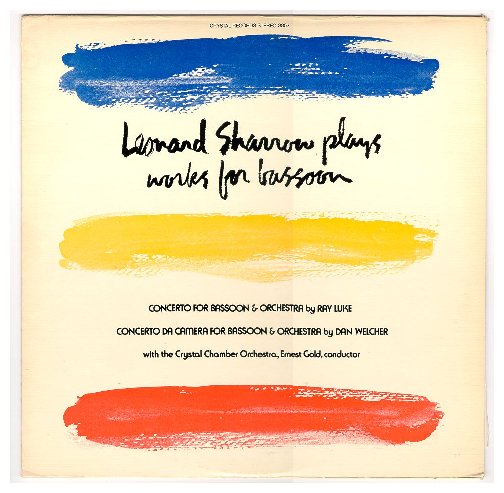 I bring this up because it was a recording of the Bassoon Concerto by Ray Luke which
piqued my interest in the composer. I had, of course, the LP
issue, with its professional but uninteresting cover (seen at left). The photo
farther down on this webpage shows a later edition on CD with an
appropriate cartoon depicted. I figured that if he had written
this delightful work for my favored instrument, he must be a nice
fellow. So I made contact with him in July of 1989, and my
assumption was proven very true.
I bring this up because it was a recording of the Bassoon Concerto by Ray Luke which
piqued my interest in the composer. I had, of course, the LP
issue, with its professional but uninteresting cover (seen at left). The photo
farther down on this webpage shows a later edition on CD with an
appropriate cartoon depicted. I figured that if he had written
this delightful work for my favored instrument, he must be a nice
fellow. So I made contact with him in July of 1989, and my
assumption was proven very true.  BD: Is there any chance that
maybe there is
simply too much new music around?
BD: Is there any chance that
maybe there is
simply too much new music around?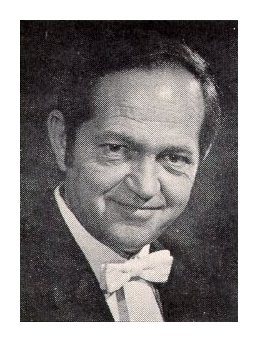 RL: No, no. Well, it can
be taught to that
person who’s showing a first interest. He can be introduced to
all the many styles and possibilities. I remember when I started
to
try to compose, I had to find out what’s going on and what was there
available to me. I asked how could I write if I wanted to?
Which
could I choose? Where can I go to find something to choose for a
way to write? Some of those things can be taught, but
certainly just above that beginning level we’re
talking about a coach; someone who can encourage, someone who can
perceive difficulties or who can sense directions that need to be
taken,
can guide listening, and frankly, help develop the technique. It
is necessary that the composer have technique. He can’t just sit
down and start rambling in some way. That can be taught, but
certainly it’s a matter of guiding. You’re teaching always
through
the music that the student is composing. So he has to do his
writing and then be criticized and helped with it.
RL: No, no. Well, it can
be taught to that
person who’s showing a first interest. He can be introduced to
all the many styles and possibilities. I remember when I started
to
try to compose, I had to find out what’s going on and what was there
available to me. I asked how could I write if I wanted to?
Which
could I choose? Where can I go to find something to choose for a
way to write? Some of those things can be taught, but
certainly just above that beginning level we’re
talking about a coach; someone who can encourage, someone who can
perceive difficulties or who can sense directions that need to be
taken,
can guide listening, and frankly, help develop the technique. It
is necessary that the composer have technique. He can’t just sit
down and start rambling in some way. That can be taught, but
certainly it’s a matter of guiding. You’re teaching always
through
the music that the student is composing. So he has to do his
writing and then be criticized and helped with it.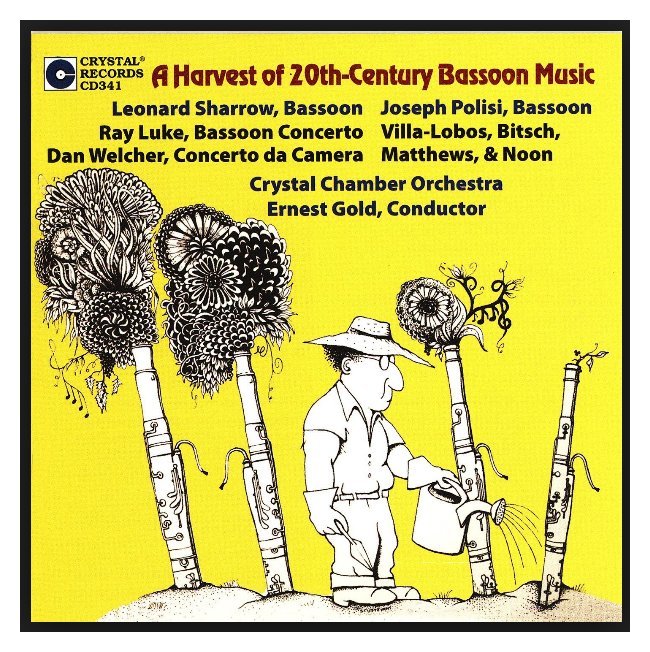 RL: This was commissioned by Guy
Fraser
Harrison in the Oklahoma City Symphony for Betty Johnson. It is
Elizabeth, but everybody knows her as Betty, the principal bassoonist
of the orchestra, a consummate artist. I think that I have not
heard a bassoonist that I enjoy more than I enjoy hearing her.
She
has retired from orchestra playing now but still is a wonderful
bassoonist. I sensed an opportunity to hear something performed
very well. At the same time, I had another work
commissioned, Symphonic Dialogues
for Violin, Oboe and Orchestra. This is one of those times when I
took on more than
I should have. The
symphony had given me deadlines on both of those works, and in December
I was looking at a March deadline for both works. They were
not moving very well, so I booked quickly an opportunity to go to the
McDowell Colony. It was in the winter, and it took me three
days to quit looking at the snow and the squirrels playing in it.
I composed the Bassoon Concerto
in three weeks, and the Symphonic
Dialogues in ten days.
RL: This was commissioned by Guy
Fraser
Harrison in the Oklahoma City Symphony for Betty Johnson. It is
Elizabeth, but everybody knows her as Betty, the principal bassoonist
of the orchestra, a consummate artist. I think that I have not
heard a bassoonist that I enjoy more than I enjoy hearing her.
She
has retired from orchestra playing now but still is a wonderful
bassoonist. I sensed an opportunity to hear something performed
very well. At the same time, I had another work
commissioned, Symphonic Dialogues
for Violin, Oboe and Orchestra. This is one of those times when I
took on more than
I should have. The
symphony had given me deadlines on both of those works, and in December
I was looking at a March deadline for both works. They were
not moving very well, so I booked quickly an opportunity to go to the
McDowell Colony. It was in the winter, and it took me three
days to quit looking at the snow and the squirrels playing in it.
I composed the Bassoon Concerto
in three weeks, and the Symphonic
Dialogues in ten days.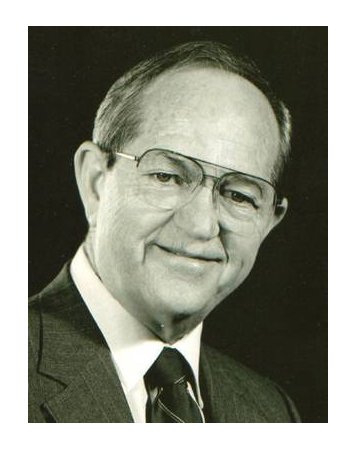 RL: [Pauses for a moment]
I think so, only because I know that when it gets
off in the wrong direction, it changes. The history of
music is change, and change is inevitable. It’s not always good,
and sometimes it goes in directions we are not in great sympathy with,
but that evens out. I don’t know whether it will in my
lifetime or not, but I enjoy seeing where music goes, and I enjoy
seeing where my music goes. It’s for someone else to decide
whether that’s where it should have gone.
RL: [Pauses for a moment]
I think so, only because I know that when it gets
off in the wrong direction, it changes. The history of
music is change, and change is inevitable. It’s not always good,
and sometimes it goes in directions we are not in great sympathy with,
but that evens out. I don’t know whether it will in my
lifetime or not, but I enjoy seeing where music goes, and I enjoy
seeing where my music goes. It’s for someone else to decide
whether that’s where it should have gone.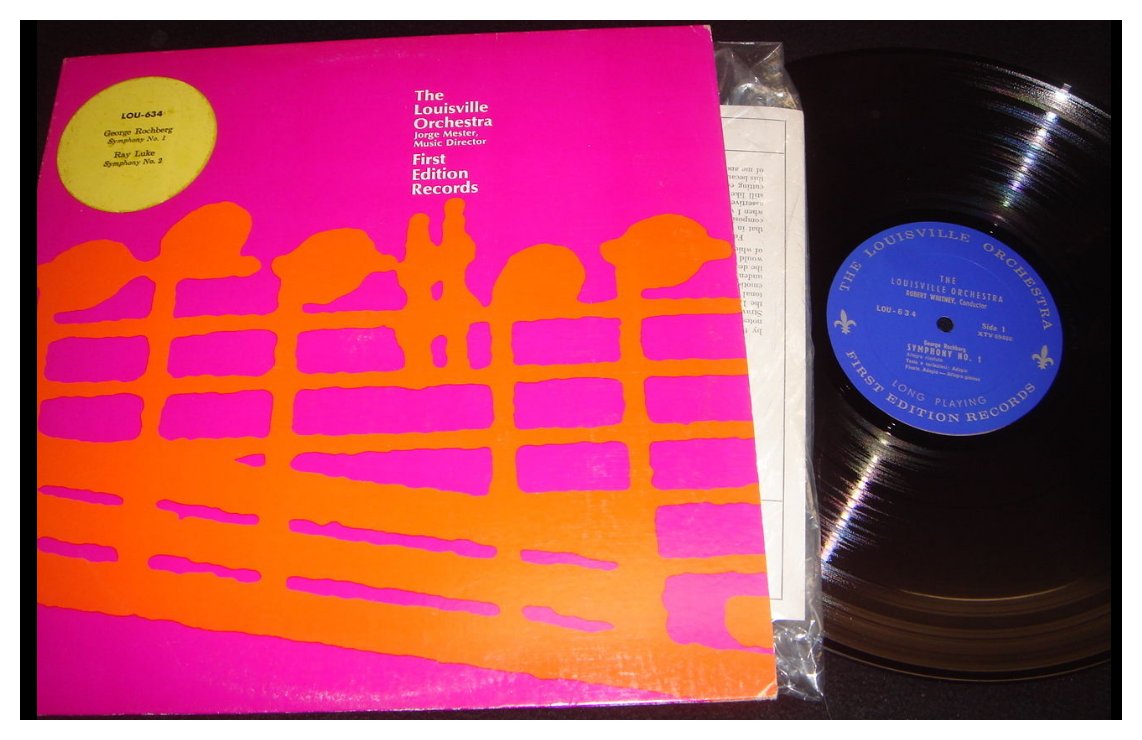
This conversation was recorded on the telephone on July 15,
1989. Portions were broadcast on WNIB in 1996, and his recordings
were used on the air (without interview segments) several times both
before and after that date.
This transcription was made in 2014, and posted on this
website
at that time.
To see a full list (with links) of interviews which have been transcribed and posted on this website, click here.
Award - winning broadcaster Bruce Duffie was with WNIB, Classical 97 in Chicago from 1975 until its final moment as a classical station in February of 2001. His interviews have also appeared in various magazines and journals since 1980, and he now continues his broadcast series on WNUR-FM, as well as on Contemporary Classical Internet Radio.
You are invited to visit his website for more information about his work, including selected transcripts of other interviews, plus a full list of his guests. He would also like to call your attention to the photos and information about his grandfather, who was a pioneer in the automotive field more than a century ago. You may also send him E-Mail with comments, questions and suggestions.